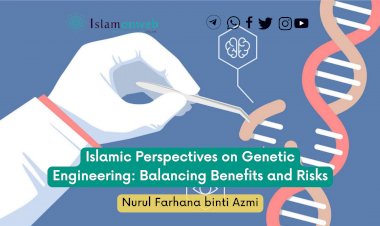Road Towards a Maqāṣidic Governance of Waqf in Kerala: A Preliminary Analysis (Part One)
Introduction
Waqf means Islamic inalienable endowment meant for the perpetual benefit of the intended beneficiaries. It has a vast potential to help people, render economic support to the community, and enable welfare to the needy sector in society. It plays a philanthropic, religious and charitable role in the well-being of the people, with profound socio-economic implications. The major parties in Waqf are 1) wāaqif (settler/endower), 2) mawqūf ʿalayhi (beneficiary of Waqf), 3) mawqūf bihi (waqf property/asset), and 4) mutawallī (trustee/manager). In general, Waqf can be said as a charitable trust. It has the distinctive role of charity due to its inherent nature of permanent use. Also, its ownership is transferred to Allah, and the usufruct of waqf assets is dedicated to the proposed recipients, distinguishing it from zakāt, ṣadaqah and hadiyyah, which are generally useful for a limited period only. In that sense, Waqf is more than a charitable trust. It is distinguished by perpetuity, irrevocability and inalienability. Islam gives enormous importance to Waqf with great merits offered to the endower. Since it has the nature of perpetuity, it has become a source of accumulated societal wealth over the years with the potential to be used to empower Muslim society.[1]
Good governance is inevitable for proliferating the Waqf assets and broadening their usufruct. However, in many parts of the world, Waqf institutions endure incompetent governance and mal-administration. Subject to wise and efficient administration, Waqf can be an integral brick in the social infrastructure of Muslim lives in the modern world. Following the specific conditions set by the endowers, Waqf can be used in education, healthcare, socio-economic development, and public welfare. Being a source of providing such public services reduces the government burden. Its involvement in supporting teaching and research via scholarships, fellowships and research grants strengthens the intellectual freedom of scholars from political constraints.
As a common complaint, Waqf in India has not been administered with due diligence, which ended in hampering its development and depriving its intrinsic characteristics. In India, millions of Muslims are suffering from poverty, and as a result, they are a backward community in the country in several walks of life. India has the third-largest Muslim population in the world, and it has enormous waqf properties worth billions of Indian rupees, which is deemed one of the largest waqf assets in the world.[2] In India, Muslims are the second-largest community, with more than 180 million population, constituting nearly 14 % of the population in the country.[3] Undoubtedly, if appropriately used, Waqf in India has the potential to transform several lives as a big number of people are suffering from economic disadvantage and in need of assistance to meet their basic needs. Since Waqf in India is too large and complex to discuss in this study. This study will focus on Waqf in Kerala; a state on the tropical Malabar Coast.
In Islamic jurisprudence, Maqāṣid al-Sharīʿiah is perceived as a section that deals with the ultimate goals, wisdom and inner insights behind Islamic ruling. Therefore, Maqāṣid has a distinctive role in all juristic deliberations and fiqhī discourses. The implementation of Maqāṣid leads the way towards the realization of sustainable development and complete success. In the light of Maqāṣid, the jurists can fashion the rights and duties of all parties involved in the Islamic endowment, fitting to contemporary times. The governance enriched with Maqāṣid principles is hoped to fulfil the goals of Waqf and meet the needs of the time, which is called here as maqāṣidic governance. Meeting the needs of times is a vital component of Maqāṣid al-Sharīʿiah.
The primary focus of the current study is to investigate how efficiently the Waqf institution functions in Kerala. Also, it analyses the reciprocal relationship between Maqāṣid al-Sharīʿiah and Waqf, followed by a discussion of the scope of maqāṣidic governance in waqf management. Finally, it attempts to apply the maqāṣidic governance to the current waqf practices held in Kerala.
Brief Note on Waqf in India
Indian Muslims have a huge source of movable and immovable waqf properties and assets.[4] In India, Muslim endowments are established for mosques, religious institutes, tombs of Sufi people, graveyards, orphanages, etc. Awqaf in India are administered or managed by mutawallīs, whereas the governing power is vested in State Waqf Boards.
Central Waqf Council rules and oversees the State Waqf Boards. Central Waqf Council is an Indian statutory body, which was established in 1964 under the Waqf Act, 1954 (now a subsection of the Waqf Act, 1995). It advises the State Waqf Boards on its functioning matters and proper administration of the Awqaf in the country. The Council is headed by a Chairperson, the Union Minister in charge of Awqaf.
During the Mughal period, Waqf in India was administered and supervised by the mutawallīs, known for their piety, religious awareness and knowledge about the Islamic rulings pertaining to Waqf.[5] However, beginning with the British colonialism in India, like many other Islamic symbols, Waqf was also handed over to unqualified people, which as a result, led to the pathetic dismay of the waqf institution.[6] During the partition time, several waqf properties in India became misplaced and illegally occupied.[7]
In India, Waqf law in its current form came into existence in 1863 with the name Religious Endowment Act. Its name and contents were amended multiple times, such as Musalman’s Waqf Validating Act in 1913, Musalman Waqf Act in 1923, Musalman Waqf validating Act in 1930, and Waqf Act in 1954. After independence, the Government of India passed the Waqf Act 1954 to promote better administration of Waqf properties in the country. Due to some defects in the Act, it was modified three times within 15 years, in 1959, 1964 and 1969. By following the recommendations made by the Waqf enquiry committee appointed in 1970, the Act was again largely modified in 1984. It was again amended in 1995, and the latest was in 2013.[8] One of the amendments in 1995 was to limit the prerogatives of mutawallī for controlling the misuse of waqf property.[9]
It is reported that more than 490,000 registered Awqaf are found across different states and union territories of India. A large concentration of the waqf properties is in West Bengal (148,200), followed by Uttar Pradesh (122,839). Other states with a sizeable number of Awqaf are Kerala, Karnataka and Andhra Pradesh.[10] According to the Sachar Committee Report (2006), the total value of the Waqf properties in India in 2006 was around 500,000 assets, encompassing a total area of 600,000 acres, with a market value of more than 60 billion Indian rupees. According to the same report, if the Waqf properties had better governance, they could generate a return of ten per cent, which would amount to around 1200 billion Indian rupees per annum (Sachar Committee, 2006). However, the current annual income from these properties is only about Rs. 1.630 billion. Of this amount, the Waqf Boards are entitled to receive a share at the rate of 7%, which is used for the working expenses of the waqf Boards.[11] The remaining amount is expected to be spent on the stated objectives of the respective Awqaf.[12]
Waqf in Kerala
The history of Islam in Kerala traces back to the era of the Prophet Muhammad ﷺ.[13] The history of Waqf in Kerala and the history of the advent of Islam in Kerala are interconnected. The first mosque in South Asia is believed to be built in Kerala, known as the Kodungallur mosque. It means the history of Waqf in Kerala is among the oldest in the vast region of South and Southeast Asia. The earliest waqf lands in Kerala are the contributions of the Hindu rulers.[14] Masjid is the centre of Islamic life, and masjid will always be a waqf property. After the migration of the Prophet to Madinah, among the first things the Prophet did was buying a land for the masjid and its construction.
An excellent amount of Waqf in Kerala is dedicated to dars (system for religious education, mainly attached to mosques).[15] As a result, Waqf played a significant role in producing several prominent Islamic scholars in Kerala. Students were given free food and accommodation, and teachers were supported by good salaries and remuneration, benefiting from the Waqf made in their respective areas. In several places, mosques are not built in the cities but in remote areas to facilitate a learning atmosphere for students of dars. These Awqaf for dars need to be read in a larger context, considering the importance of knowledge in Islam. Previously, some Keralite Muslims used to do Waqf of some trees, such as coconut, jackfruit, areca palm, cashew nut, and black pepper, for masjid and madrassa, which helped to generate income and support the system.[16]
Compared to other states of India, the misappropriation of waqf lands in Kerala is less due to geographical and historical reasons, including religious awareness.[17] From 1950, many waqf lands were given for lease by the Waqf Board for farming and other activities, which were not given back to the Board and became personal properties.[18] On some occasions, mutawallīs/managers sold waqf lands for their interests.[19] However, as reported by the former Waqf Board Chairman Sayyid Rasheed Ali Shihab, many of such lands were recovered by order from the Board. Some people gave back their properties even without an order for the sake of the pleasure of Allah. For example, an older man of 98 years gave back two acres of land with enormous market value, realizing it was a waqf of Manjeri orphanage. This incident drew the media’s attention, and others were also motivated to do the same.[20]
Kerala State Wakf Board
The Kerala State Wakf Board came into existence in 1960 with P.K. Kunju Sahib (Former minister) as its chairman.[21] Currently, around ten thousand waqf properties are registered under the waqf board of Kerala state. It includes graveyards, mosques, orphanages, properties, lands, etc. These are supervised by managements, mutawallīs, local committees, and elected people by the court or Board. Kadavathu mosque, in Kasaragod district, is believed as the first Waqf registered under the Kerala Wakf Board.[22]
Kerala State Wakf Board is a statutory body constituted by the Government of Kerala under the Wakf Act 1995, selected for five-year terms of office (Central Act 43 of 1995). The primary functions of the regulatory authority can be listed as:
(1) general superintendence of all waqf institutions and their properties,
(2) exercise powers under the Wakf Act to ensure that the Awqaf under its superintendence are adequately maintained, controlled and administered, and
(3) the income is duly applied to the objects for which such Awqaf are created or intended.[23]
The Central Government appoints a chief executive officer (CEO) for the Board. Also, the Board is empowered by the Act to appoint several officers and other employees as per need for the performance of its functions in consultation with the State Government under section 24 of Wakf Act, 1995.[24]
This Board plays a pivotal role in the waqf management in Kerala, like in other states of India. Its duties include: (1) recovering alienated waqf properties, (2) evicting tenants from waqf properties and (3) land acquisition proceedings.
The Board is an important forum to solve disputes regarding the Awqaf. It holds judicial power over all affairs dealing with Waqf throughout Kerala. Every month, two meetings of the Waqf board, which are presided by the chairman, are held in Ernakulam and Kozhikode to hear waqf cases. Upon the notice from Waqf Board, the Revenue Department of the state and district collector have the duty to recover the trespassed lands/properties of Awqaf.
The waqf board consists of 10 members, including two members from the legislative assembly of Kerala, one member from the parliament, scholars from Sunni and Shia, two women representatives, and two elected mutawallīs. The government of Kerala also nominates some members.[25]
The seven per cent of waqf income received by the Waqf Board is spent on office expenditure and the salary of the waqf board staff. The Board has implemented loan scholarships for economically poor students studying professional courses.[26] The Board is also allotting grants to 100 students for their higher studies by utilizing 50% grants from Central Waqf Council.[27]
The Waqf board uses Kerala’s waqf lands to gain income for various activities. The grounds are given for lease for farming and other activities. In some areas, waqf lands are used for the plantation of medicinal plants, which helps to get income and keep their sites clean, productive and valuable. This process is called a tri-party agreement. The first party is the waqf board. Mutawallī and the land receiver are the second and third parties, respectively. The maximum duration of the lease is 30 years. The Waqf board motivates entrepreneurs to start new profitable institutions by giving loans.[28] The Waqf board allots a loan to them for their construction and other requirements on waqf land. The primary duties of Kerala State Waqf are as follows[29]:
- To maintain the register of Awqaf.
- To direct mutawallīs for the proper administration of Awqaf.
- To scrutinize the budgets and accounts of the Awqaf.
- Audit the accounts of Awqaf.
- To settle and frame schemes of management of the Awqaf.
- To recover the alienated waqf properties through District Collectors.
- To remove encroachments through Sub Divisional Magistrates.
- To sanction to purchase properties and grant lease/ mortgage of Awqaf Properties.
- To appoint and remove mutawallīs in some instances.
- Assume direct management, supervision and supersession of management of Awqaf.
- Inquiry relating to the administration of the Awqaf and the disposal of their revenue after due consideration of the cases filed before the Board by aggrieved parties.
In addition, Waqf Board undertakes some social and educational welfare activities for the development of the Muslim community in the State, which are as follows[30]:
- Pension to scholars and teachers in Arabic language and Literature and khādims under Social Welfare Scheme.
- Financial aid for marriage and treatment under Social Welfare Scheme.
- Loan scholarship for professional education.
- Grant scholarship for technical and higher secondary education.
- Providing loans for the construction of the shopping complex, shadi mahals etc., from Central Wakf Council.
- Providing grants for libraries from Central Wakf Council.
- Issuing marriage certificate.
- Maintenance for poor Muslim divorced women as per the court’s order.
- To provide financial support to start Islamic Chairs in Universities.
Income to Kerala Waqf Board from Hindu Devotees
Hinduism is the most widely professed faith in Kerala. The Sabarimala Temple is a temple complex located at Sabarimala hill inside the Periyar Tiger Reserve in the Perinad Village, Pathanamthitta district, Kerala, India. It is one of the largest annual pilgrimage sites globally, with over 40 to 50 million devotees visiting every year. The temple is dedicated to a Hindu Brahmachari (Celibate) deity Ayyappan. The story about the friendship between the Ayyappa and the Muslim saint Vavar is an excellent example of communal harmony in Kerala. Vavar’s tomb is located on the way to Sabarimala temple. It is believed that Ayyappa ordered all of his devotees to visit his best friend Vavar before coming to Sabarimala. As a tribute to this order, all devotees of Ayyappa come to the Vavar before going to Sabarimala and donate some amount and coconut to the Vavar masjid. These donations make some income for the Kerala waqf board.[31]
(This article is part of a research work which was originally published on AWQAF Journal, 22 (42). pp. 13-44. ISSN 1609-4662, published from Kuwait).
[1] Abdul Kader, S. Z. S., & Dahlan, N. H. M. (2009). Current Legal Issues Concerning Awqaf in Malaysia. Paper Presented at the Waqf Laws and Management: Reality and Prospects, Kuala Lumpur.
[2] Shanmugam Munuswamy & Zulkifflee Bin Mohamed, “Financial Disclosure Pattern of State Waqf Boards in India: An Exploratory Study”, Journal of Islamic Economics, Banking and Finance, Vol-12, No. 4, Oct - Dec, 2016; 139.
[3] Ibid, p. 141.
[4] Ibid.
[5] Pearson, O. H. (2008). Islāmic Revival and Revival in Nineteenth-Century India. New Delhi: Yoda Press.
[6] Abdullah, M. (2015). A New Framework of Corporate Governance for Waqf: A Preliminary Proposal. Islām and Civilisational Renewal, 6 (3).
[7] Central Waqf Act, 1954 (India), https://islamicmarkets.com/education/central-waqf-act-1954-india
[8] Karimi, I. A. (2014). Bihar State Sunny Waqf Board. Paper presented in the seminar on “Awqāf & its law in India” held at Bangalore, India on March 29-30, 2014.
[9] K L Abdul Salam, “Waqf Niyam: Oru Ethi Nottam”, Prabodhanam Weekly, https://www.prabodhanam.net/article/4789/256
[10] [10] Shanmugam Munuswamy & Zulkifflee Bin Mohamed, “Financial Disclosure Pattern of State Waqf Boards In India: An Exploratory Study”, 142.
[11] Shanmugam Munuswamy & Zulkifflee Bin Mohamed, “Financial Disclosure Pattern of State Waqf Boards In India: An Exploratory Study”, Journal of Islamic Economics, Banking and Finance, Vol-12, No. 4, Oct - Dec, 2016.
[12] Anwar Aziz & Jawwad Ali, “Comparative Study of Waqf Institutions Governance in India and Malaysia”, Intellectual Discourse, Special Issue (2018) 1233.
[13] Muhsin, S. M. (2021). Three Fatwas on Marriage in South India. Journal of Islam in Asia (E-ISSN 2289-8077), 18(1), 252.
[14] Abbas Pannakal, The Chronicle of Waqf and Inception of Mosques in Malabar: A Study Based on the Qiṣṣat Manuscript, Intellectual Discourse, Special Issue, 2018, pp. 1167-1190.
[15] Noushad MK, Waqf culture: the socio-educational impact of Auqaf on Muslim community, http://muslimheritage.in/author/139
[16] Ibid.
[17] Ibid.
[18] Interview by the researcher with Sayyid Rasheed Ali Shihab, the former chairman of Kerala State Waqf Board, March 27, 2022.
[19] Ibid.
[20] Ibid.
[21] Kerala State Waqf Board, http://www.keralastatewakfboard.in/
[22] Ibid.
[23] Ibid.
[24] http://www.keralastatewakfboard.in/about.html
[25] Interview by the researcher with Sayyid Rasheed Ali Shihab, the former chairman of Kerala State Waqf Board, March 27, 2022.
[26] Ibid.
[27] Ibid.
[28] Ibid.
[29] The Kerala State Wakf Board, Activities, http://www.keralastatewakfboard.in/activities.html
[30] Ibid.
[31] Interview by the researcher with Sayyid Rasheed Ali Shihab, the former chairman of Kerala State Waqf Board, March 27, 2022.
About author:
Sayyed Mohamed Muhsin is an assistant professor of Islamic jurisprudence at International Islamic University (IIUM), Kuala Lumpur. He also serves as Editor-in-Chief of Islamonweb-English.
Disclaimer
The views expressed in this article are the author’s own and do not necessarily mirror Islamonweb’s editorial stance.
























Leave A Comment